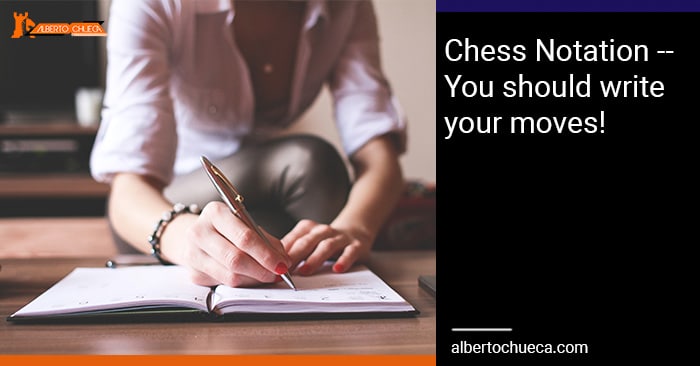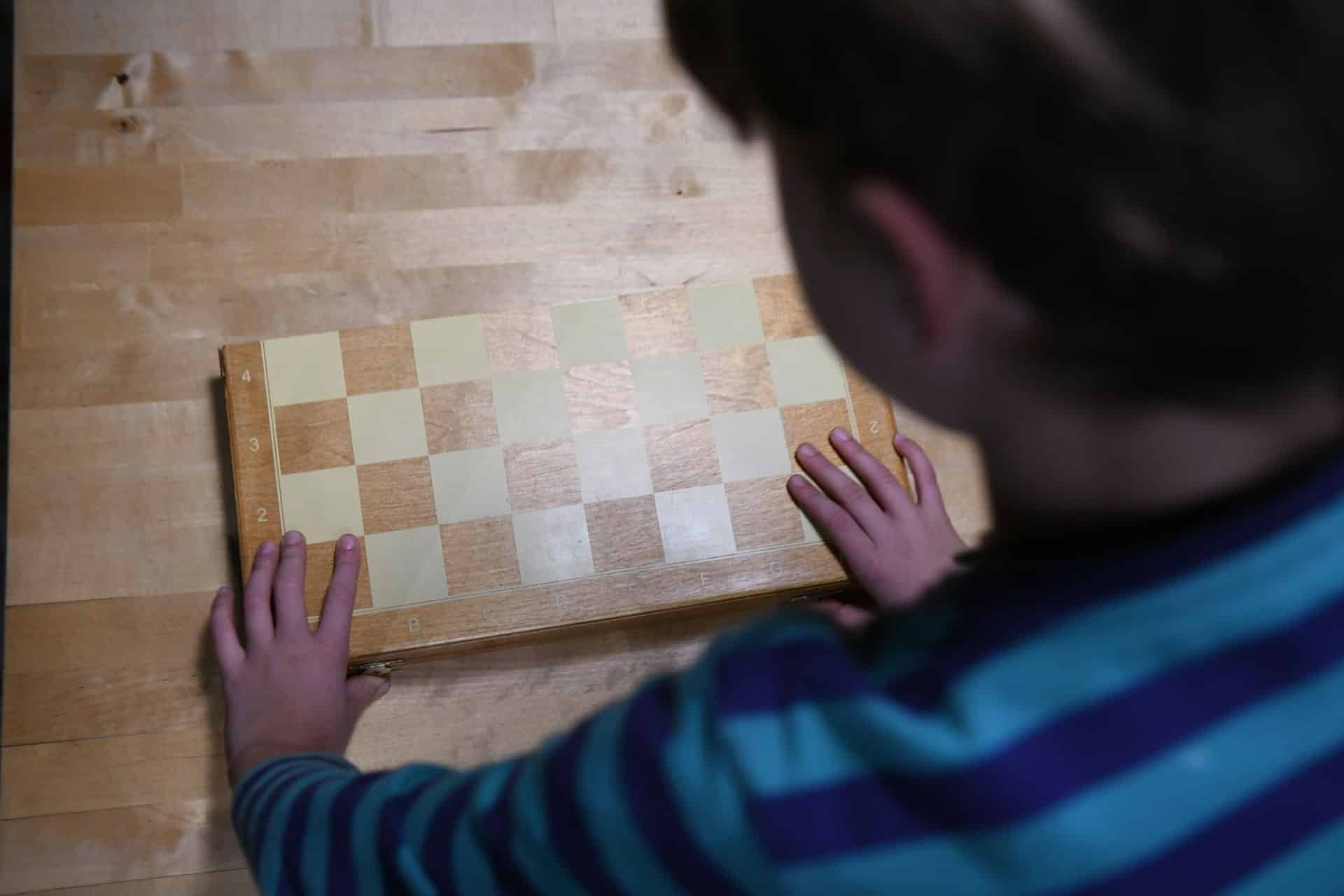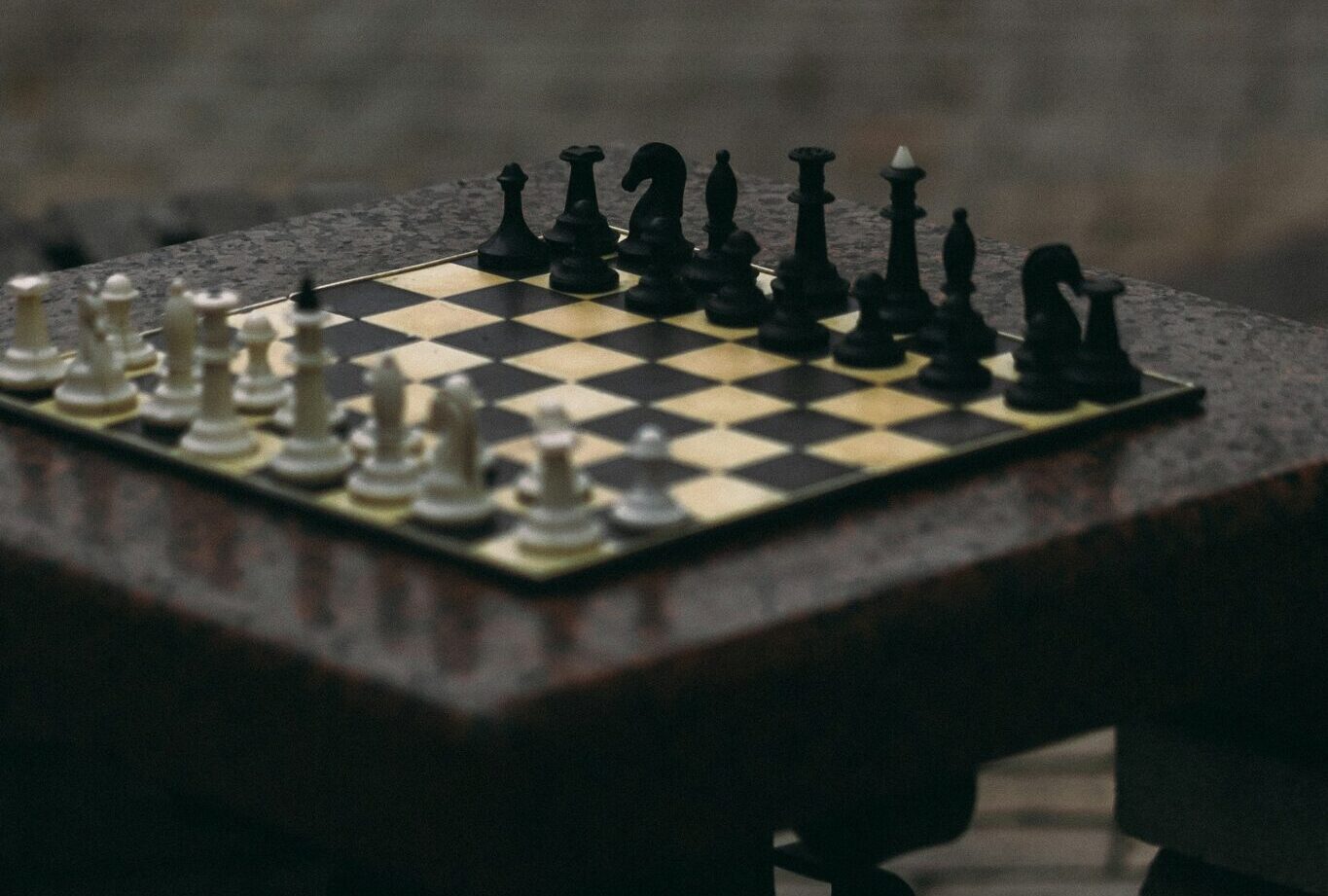Table of Contents
Chess Notation: the recording of chess moves
Have you ever watched top-level chess, maybe got inspired by the players putting on a chess show? Did you ever notice how mindlessly they would move the chess piece, hit their clock, and write something down on a sheet of paper? And when you go do it at a tournament for the first time, it seemed easy when observing, but it's pretty difficult in practice!
But what are the players writing on the sheet of paper, following the moving of the pieces, and the pushing of the chess clock? That is chess notation, where the players record the games.
Why we do chess notation: the documentation
This may sound weird to the casual chess fan who maybe has played solely online, that you have to write down your moves for documentation. What is with that?
At the higher levels of chess, for example, when Magnus Carlsen and Fabiano Caruana played for the world chess championship title, a lot of money, titles, and accolades are at stake. The world championship match in 2018 had a total prize fund of one million euros minimum! When there is serious money to be had, it is only proper to document what happened, so that both sides are in constant agreement of the result.
At lower levels, scaling down to scholastic chess, you must notate, partly to evade cheating attempts! Imagine in a chess tournament if your opponent made an illegal move (by accident or on purpose), and declared, “checkmate!”. If you do not notate your moves, you technically cannot claim an illegal move. However, if you wrote down your moves, you are able to PROVE the moves that were made, and the game goes on without the illegal checkmate.
Some people refuse to notate their games but do it at tournaments. It's the safest thing.
Why we write our moves: review our games
At the higher levels of chess (GM and above generally), most of their games are already documented, so they are solely notating for legal obligations.
At a lower level, let's say 1400 FIDE, it is imperative that you record your moves yourself, because no one else, other than your opponent, is going to do it for you! And why is it important to notate in the future outside of legalities?
Because you can review the game afterward! You will be able to punch the game into Chessbase, or whatever your favorite chess software is, review your mistakes/key moments, and if you have a coach, go over the game with them. If you do not notate your games, you very well may forget them!
Is chess notation required in tournaments?
Yes, chess notation is generally required in chess tournaments. Especially if they are FIDE rated, or for your national chess federation. We're pushed to notate for the reasons above. However, let's discuss a few exemptions to where you would not have to write the moves of your chess game:
- Beginners may be excused for their very first tournament game or so. When we speak of beginners, we are not talking about 1200 ELO, we're talking about literally your first game. However, notation is pretty intuitive (especially if the chessboard has the coordinates available), so beginners are generally expected to learn during the tournament or for the next tournament.
- Handicapped players who cannot write due to certain medical conditions are absolutely excused from notation. We will not force someone with challenges in their life and/or health to do something they cannot do!
- If you are under 5 minutes during the chess game, you are at liberty to put the notation sheet down, and focus on the chess game at hand, as you are in time trouble, and need every bit of your concentration dedicated to winning the game!
A recap about chess notation
We've discussed in detail the benefits of notation, and why you should do it. However, let's take some time to recap:
- Documentation — we may need to prove that we ended up winning the game! Or that our opponent made an illegal move. Anything official should be documented.
- Game review — digitize the game, and learn from your mistakes.
- It's required in chess tournament play anyway :)






